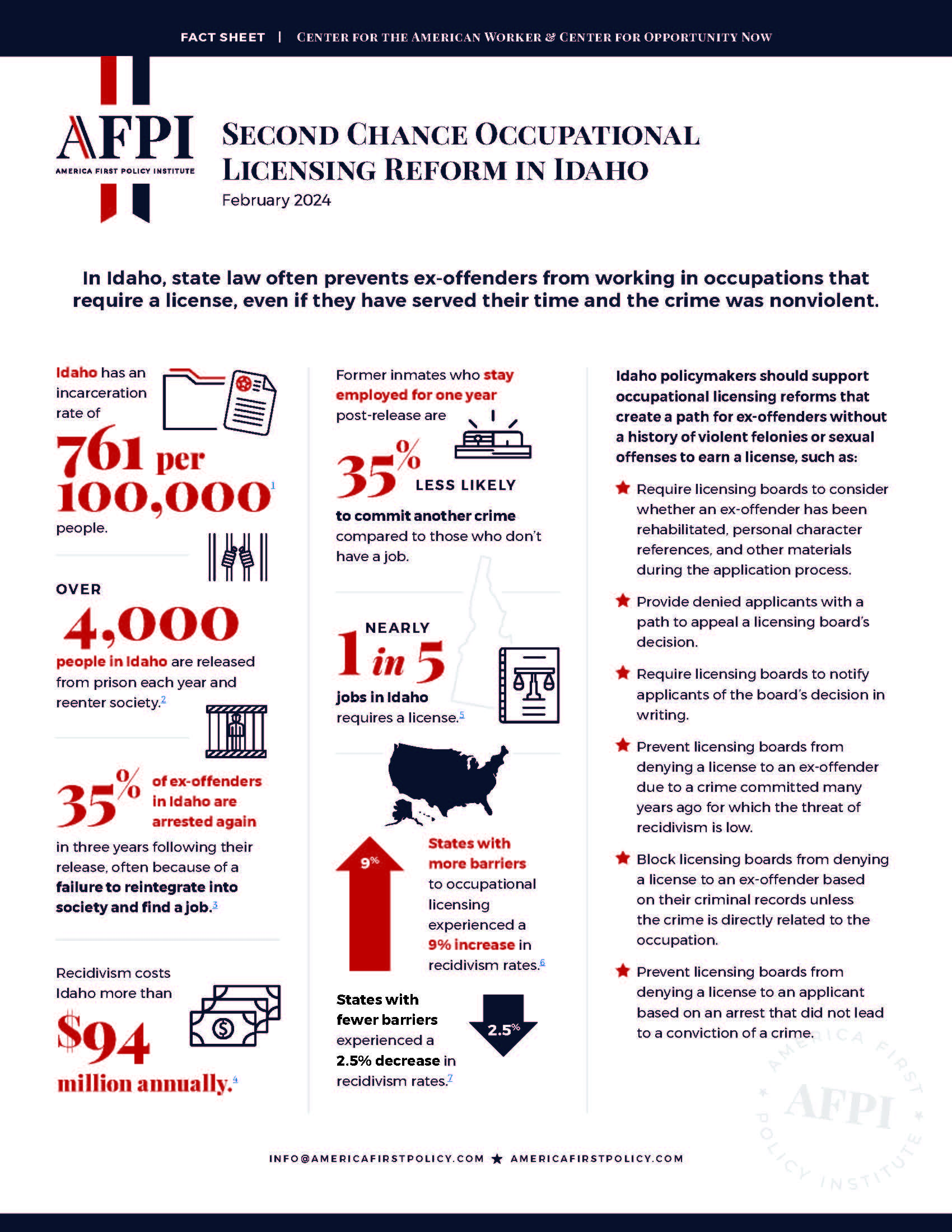Second Chance Occupational Licensing Reform in Idaho
In Idaho, state law often prevents ex-offenders from working in occupations that require a license, even if they have served their time and the crime was nonviolent.
Idaho has an incarceration rate of 761 per 100,000 people.
Over 4,000 people in Idaho are released from prison each year and reenter society.
35% of ex-offenders in Idaho are arrested again in three years following their release, often because of a failure to reintegrate into society and find a job.
Recidivism costs Idaho more than $94 million annually.
Former inmates who stay employed for one year post-release are 35% less likely to commit another crime compared to those who don't have a job.
Nearly 1 in 5 jobs in Idaho requires a license.
States with more barriers to occupational licensing experienced a 9% increase in recidivism rates.
States with fewer barriers experienced a 2.5% decrease in recidivism rates.
Idaho policymakers should support occupational licensing reforms that create a path for ex-offenders without a history of violent felonies or sexual offenses to earn a license, such as:
- Require licensing boards to consider whether an ex-offender has been rehabilitated, personal character
- references, and other materials during the application process.
- Provide denied applicants with a path to appeal a licensing board’s decision.
- Require licensing boards to notify applicants of the board’s decision in writing.
- Prevent licensing boards from denying a license to an ex-offender due to a crime committed many years ago for which the threat of recidivism is low.
- Block licensing boards from denying a license to an ex-offender based on their criminal records unless the crime is directly related to the occupation.
- Prevent licensing boards from denying a license to an applicant based on an arrest that did not lead to a conviction of a crime.
